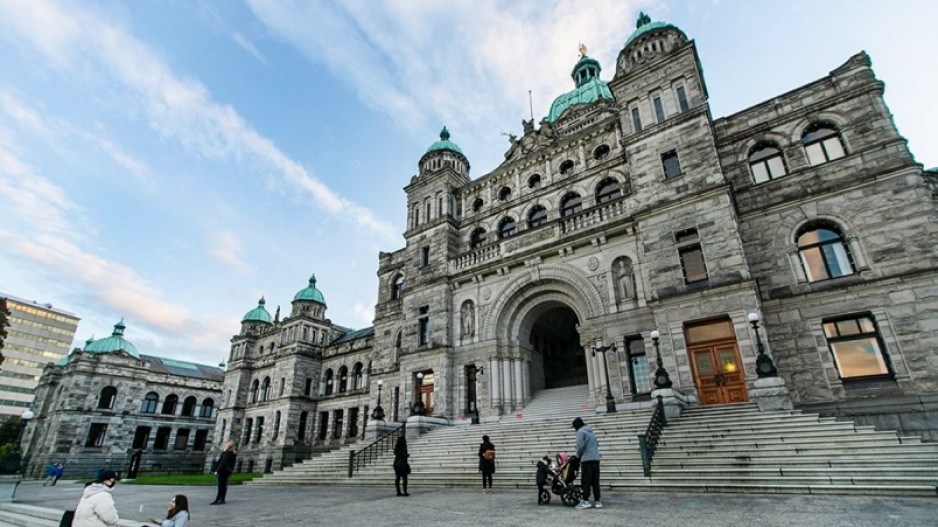The all-party committee that oversees Legislative Assembly operations voted Monday to amend communication rules for constituency offices, but the policies remain subject to the honour system.
A report to the Legislative Assembly Management Committee (LAMC) from a subcommittee that meets behind closed doors said MLAs are personally liable for the cost of any communications deemed ineligible. But there is no enforcement regime, because MLAs decided it is up to each MLA and their staff to ensure they follow the Members’ Guide to Policy and Resources.
“MLAs are not allowed to print, mail, publish or distribute at the expense of the Legislative Assembly, any material seeking financial support or containing any identification or information of a partisan or political nature,” said the briefing note for the first LAMC meeting since August. “Constituency office communications cannot include political party or caucus logos/branding.”
The briefing note indicated that members of the subcommittee on administration and operations “did not want an attestation form included in this process or for a scrutiny role to be undertaken by Legislative Assembly staff.”
It said the role of the Legislature’s financial services department is not to review and approve constituency office communications, but it may provide guidance on request about the content of proposed communications.
The eligibility policy added advertising — including the MLA’s name and contact information — on benches, billboards, buses and at arena ice rinks.
The ineligible communications list mentions party slogans, political statements, or other identifiers (excluding names and colours) and content that disparages any party or member.
“Must not include negative comments or criticize another Member, caucus, or party’s policies, platforms, or actions,” it said.
Ineligible communications also include soliciting donations (such as scholarships) in any form for any group or individual. Members may still encourage constituents to donate generally to food banks or other categories of charities.
Right before the snap 2020 election, NDP MLAs went on a spending spree, using taxpayer funds to bolster their profile in the weeks and days leading to the Legislature’s dissolution. Nineteen MLAs combined spent almost $145,000 to mail out letters, leaflets and postcards from their riding office budgets.
Vancouver-Fraserview MLA George Chow expensed $10,269 for six transit shelter ads beginning the week before John Horgan called the election. Bowinn Ma (North Vancouver-Lonsdale) spent almost $19,000 to buy 5,000 non-medical cloth facemasks bearing her name and riding from Dad’s Printing. Delta North’s Ravi Kahlon spent almost $12,000 from the same supplier on 4,000 masks promoting his office.
During the April 1 to June 30 quarter, MLAs spent a combined $249,248 on communications and advertising. Peace River South BC Liberal MLA Mike Bernier topped the list at $16,996.
MLAs also spent a combined $2.15 million on office administration for the quarter.




